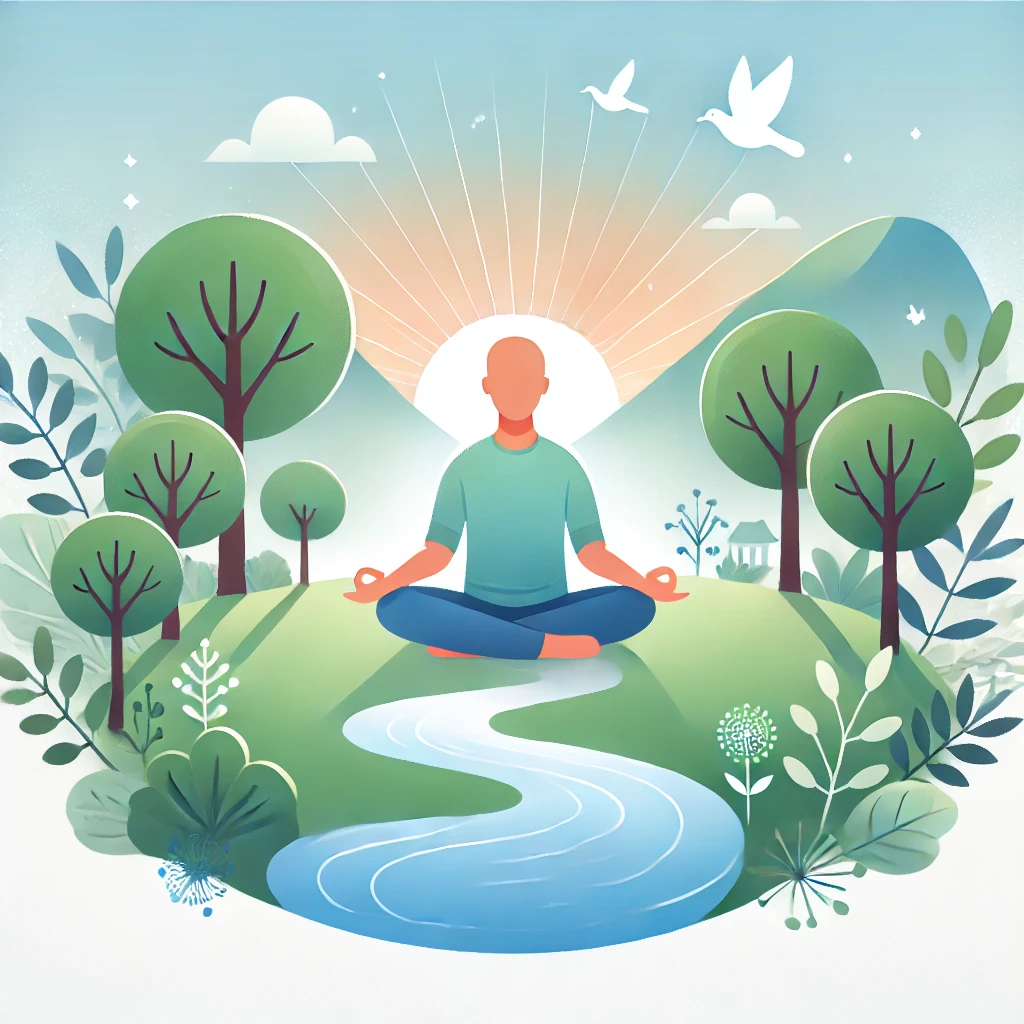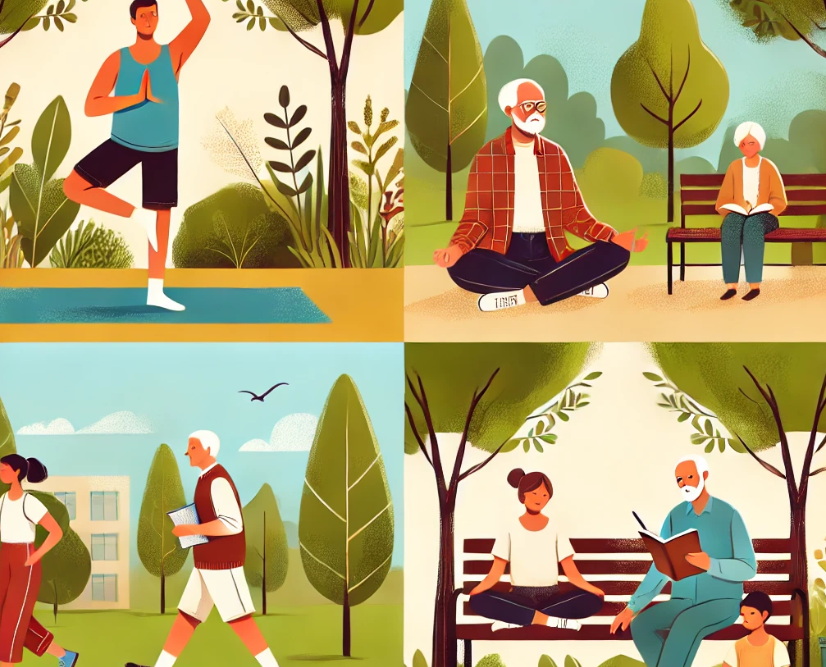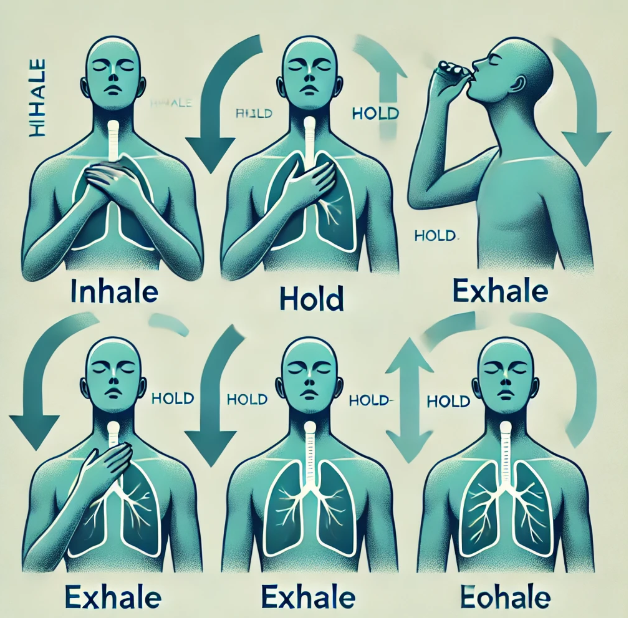
Effective Stress Relief Techniques You Can Try Today
15 Ways to Relieve Stress: Expert-Backed Methods for Every Age
By Olya rich licensed clinical professional counsler with 10+ Years of Experience

Introduction
Hello and welcome! Over the past decade, I’ve helped individuals from teens to retirees find ways to relieve stress and reclaim their peace of mind. In our modern world, juggling responsibilities can leave anyone feeling overwhelmed, which is why learning how to relieve stress effectively is more crucial than ever. Below, you’ll discover proven stress relief techniques that cater to various ages, lifestyles, and personal preferences—so you can choose the best ways to relieve stress that fit your unique situation.
1. Understand Stress Across Ages
Stress doesn’t discriminate by age, and understanding its manifestations is crucial for effective management. Research from the American Psychological Association’s Stress in America survey (Stress in America: Our health at risk) indicates that younger adults (aged 18-33) report higher stress levels (average of 5.4 on a 10-point scale) compared to Boomers (4.7) and Matures (3.7). A study during the COVID-19 pandemic (Age Differences in Stress, Life Changes, and Social Ties During the COVID-19 Pandemic: Implications for Psychological Well-Being) found younger individuals experienced more pandemic-related stress, highlighting age-specific challenges.
For teenagers, stress often stems from academic or social pressures, while adults juggle career and family demands, and seniors face health or financial concerns. This understanding helps tailor stress relief techniques, such as a 16-year-old using meditation apps for quick relief or a 60-year-old scheduling morning yoga sessions to calm the mind.
2. Embrace a Balanced Lifestyle
A balanced lifestyle is foundational in discovering how to relieve stress effectively. When your body and mind are in harmony, stress has less room to grow.
2.1 Regular Exercise
- Endorphin Boost: Exercise releases endorphins, also known as “happy hormones.”
- Types of Workouts: From brisk walks and cycling to dance classes, pick an activity that excites you.
- Age-Specific Tip: Teens and young adults might enjoy group sports, while older adults can opt for low-impact exercises like swimming or tai chi.
2.2 Healthy Eating Habits
- Mood & Food Connection: Diets rich in whole grains, fruits, and vegetables help stabilize blood sugar, reducing mood swings.
- Mindful Eating: Pay attention to your meal—taste, texture, aroma. This simple act can be one of the most underrated ways to relieve stress.
2.3 Quality Sleep
- Importance of 7–9 Hours: Lack of sleep can heighten irritability and anxiety.
- Bedtime Routine: Wind down with a warm bath or read a book. Avoid screens an hour before bed to improve sleep quality.
Pro Tip: For those struggling with insomnia, try dimming the lights and listening to soothing music to signal your brain that it’s time to rest.

3. Breathing Techniques for Immediate Calm
When stress strikes, breathing exercises are quick stress relief techniques you can do anytime, anywhere.
3.1 4-7-8 Breathing
- Inhale through your nose for 4 counts.
- Hold your breath for 7 counts.
- Exhale slowly through your mouth for 8 counts.
This technique slows your heart rate and offers rapid relaxation.
3.2 Box Breathing
- Inhale for 4 counts.
- Hold for 4 counts.
- Exhale for 4 counts.
- Hold again for 4 counts.
Repeat until you feel calm and grounded.
Example: If you’re anxious before a big presentation, slip into a quiet corner and do two minutes of box breathing to steady your nerves.
4. Mindfulness & Meditation
Mindfulness is a cornerstone in how to relieve stress naturally. By focusing on the present moment—whether you’re washing dishes or walking the dog—you train your brain to step away from anxious thoughts.
4.1 Basic Meditation
- Short Sessions: Begin with 5 minutes a day, focusing on your breath.
- Mind Wandering? It’s normal. Gently guide your thoughts back to your breath.
4.2 Daily Mindful Moments
- Routine Activities: While washing dishes or walking the dog, notice every sensation—temperature, smells, sounds.
- Why It Works: This breaks the cycle of racing thoughts, a key in how to relieve stress mentally and emotionally.
5. Progressive Muscle Relaxation (PMR)
PMR systematically tenses and then relaxes each muscle group. This physical approach to relaxation directly tackles the tension that stress creates in your body.
5.1 Step-by-Step
- Find a quiet space and sit or lie down.
- Start with your toes, tense them for 5 seconds, then release.
- Move upward—calves, thighs, abdomen, arms, shoulders, and face.
5.2 Physical & Mental Benefits
- Physical: Reduces muscle tension, slows heart rate, and steadies breathing.
- Mental: Offers a sense of control and focus—two elements vital in ways to relieve stress effectively.
6. Journaling for Emotional Clarity
Putting pen to paper can unravel complex feelings, making journaling one of the most accessible stress relief techniques.
6.1 Types of Journaling
- Gratitude Journal: List 3 things you’re grateful for each day.
- Free Writing: Write whatever comes to mind—no editing, no judgment.
6.2 Real-World Example
- College Student: Jots down daily academic worries, then lists small wins like completing a reading assignment.
- Working Professional: Reflects on the day’s challenges and brainstorms solutions.
7. Social Support & Connection
Sometimes, the best ways to relieve stress involve opening up to others.
7.1 Friends & Family
- Vent & Validate: Simply talking about your worries can lighten the emotional load.
- Shared Activities: Whether it’s a movie night or a picnic, fun times with loved ones boost mood.
7.2 Support Groups
- Online or In-Person: Find groups that match your interests or challenges.
- Why It Works: Shared experiences create a sense of belonging and understanding.
7.3 Professional Help
- Therapy & Counseling: Trained professionals offer personalized stress relief techniques.
- When to Seek Help: If stress interferes with daily life—work, relationships, or health—it’s time to consult an expert.


8. Nature Therapy
Being in nature is a gentle yet potent solution in how to relieve stress for all ages.
8.1 Activities to Try
- Forest Bathing: Slow walks in wooded areas, focusing on the natural sights and sounds.
- Gardening: Tending to plants can be deeply grounding and satisfying.
8.2 Science-Backed Benefits
- Lower Blood Pressure: Studies show that even short exposure to green spaces reduces cortisol levels.
- Enhanced Mood: Fresh air and sunlight boost serotonin, a mood-stabilizing hormone.
9. Creative Outlets
Engaging in art, music, or any form of creativity can be one of the most enjoyable ways to relieve stress.
9.1 Types of Creative Outlets
- Art: Painting, sketching, or adult coloring books.
- Music: Learning an instrument or simply listening to calming playlists.
- Writing: Poetry, short stories, or even doodling phrases that inspire you.
9.2 Why It Helps
- Focus Shift: Creativity diverts your attention from anxious thoughts.
- Self-Expression: Sometimes, expressing emotions through art is easier than talking.
10. Limit Caffeine & Alcohol
While coffee and cocktails are common, they can amplify anxiety if overused.
10.1 Effects on Stress
- Caffeine: Increases heart rate and can trigger jitteriness.
- Alcohol: May initially relax you, but it disrupts sleep and can worsen anxiety long-term.
10.2 Healthier Alternatives
- Herbal Teas: Chamomile, lavender, and peppermint are calming.
- Mocktails: Enjoy the flavor of mixed drinks without the alcohol content.
11. Herbal Remedies & Supplements
Certain herbs are frequently mentioned in discussions on how to relieve stress naturally.
11.1 Popular Herbs
- Chamomile: Known for its calming effect.
- Ashwagandha: Used in Ayurvedic medicine for stress and energy balance.
- Valerian Root: Often taken to improve sleep quality.
11.2 Important Note
Always consult a healthcare professional before adding supplements to your routine, especially if you’re taking other medications.
12. Know When to Seek Professional Help (Trustworthiness)
If stress feels overwhelming, it may be time to seek specialized stress relief techniques from mental health professionals.
12.1 Therapy Options
- Cognitive Behavioral Therapy (CBT): Targets negative thought patterns.
- Exposure Therapy: Gradually confronts fears in a controlled environment.
12.2 Medication
- Prescription: Some individuals benefit from anti-anxiety or antidepressant medications.
- Monitoring: Always follow your doctor’s advice and track any side effects.
13. Develop a Personalized Stress Toolkit
A “stress toolkit” is a collection of ways to relieve stress that resonate with you.
13.1 Identify Your Triggers
- Common Triggers: Work deadlines, relationship conflicts, or financial worries.
- Personal Journal: Keep track of situations that spike your stress.
13.2 Customize Your Strategies
- Quick Fixes: Breathing exercises or positive affirmations for on-the-spot relief.
- Long-Term Solutions: Regular exercise, balanced diet, therapy sessions.
13.3 Update as Needed
As you grow, your stressors and coping strategies may change. Review your toolkit every few months to ensure it remains effective.
Conclusion
Stress is an inevitable part of life, but it doesn’t have to overwhelm you. From breathing exercises to creative outlets and social support, there are numerous ways to relieve stress that cater to various ages and lifestyles. Understanding how to relieve stress is a journey of exploration—try out different stress relief techniques, track what works best, and remember you’re never alone in this process. By equipping yourself with these tools and maintaining a balanced lifestyle, you’ll be better prepared to face life’s challenges head-on.
🎥 Watch this video for a step-by-step guide on stress relief techniques!
Stay informed, stay relaxed, and take control of your well-being!
